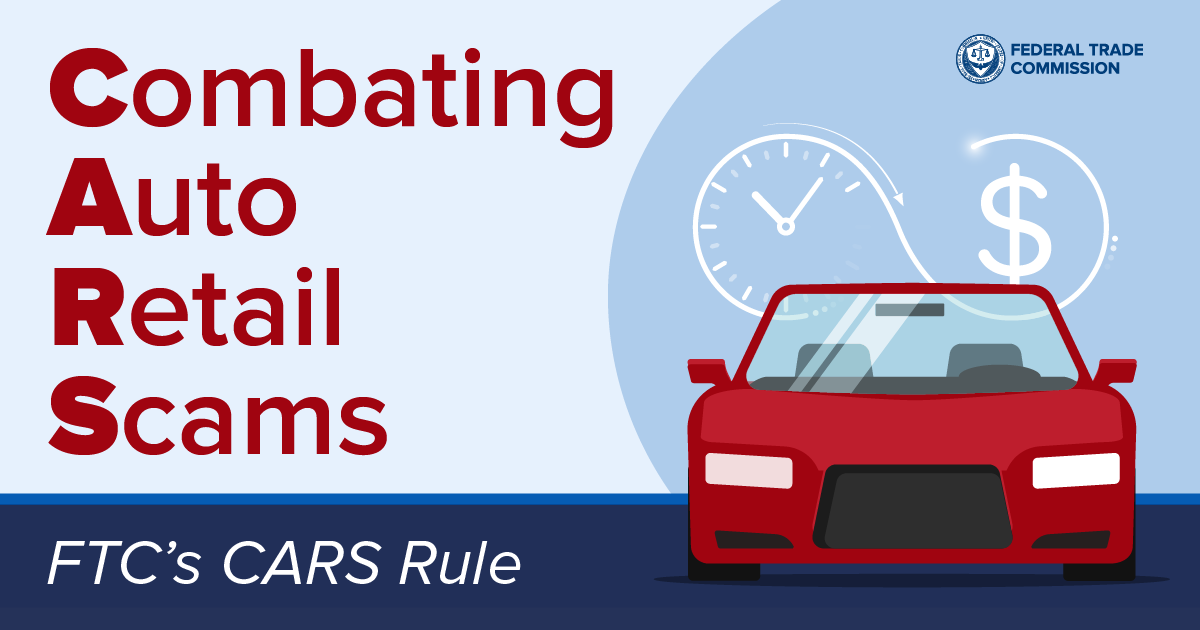FTC Announces CARS Rule to Fight Scams in Vehicle Shopping
Combating Auto Retail Scams (CARS) Rule targets bait-and-switch tactics, junk fees; includes clear protections for military members, who are frequent targets for vehicle scams
The Federal Trade Commission has finalized a new rule to fight two common types of illegal tactics consumers face when buying a car: bait-and-switch tactics and hidden junk fees. The new rule is expected to save consumers nationwide more than $3.4 billion and an estimated 72 million hours each year shopping for vehicles.
The Combating Auto Retail Scams (CARS) Rule also includes clear protections for members of the military and their families, who are targeted not only with bait-and-switch tactics and junk fees, but also deceptive information about whether dealers are affiliated with the military and other specific issues that affect servicemembers.
“When Americans set out to buy a car, they’re routinely hit with unexpected and unnecessary fees that dealers extract just because they can,” said FTC Chair Lina M. Khan. “The CARS Rule will prohibit exploitative junk fees in the car-buying process, saving people time and money and protecting honest dealers.”
The CARS Rule prohibits dealers from using bait-and-switch claims to lure vehicle buyers to the lot, including about the cost of a car or the terms of financing, the availability of any discounts or rebates, and the actual availability of the vehicles being advertised. It also tackles hidden junk fees – charges buried in lengthy contracts that consumers never agreed to pay. In some cases, these fees are for services or products that provide no benefit to consumers.
Vehicles are one of the most significant purchases that American consumers make – for many, a vehicle is the single most expensive item they will ever purchase. The CARS Rule targets illegal practices that capitalize on the challenging nature of buying a vehicle, particularly the often lengthy and opaque process that can leave consumers open to scams by unscrupulous car dealers.
What the CARS Rule Requires:
No Misrepresentations: The rule prohibits misrepresentations about key information, like price and cost.
Offering Price, Total Payment, and Add-Ons Optional: Dealers have to provide the offering price—the actual price any consumer can pay for the vehicle; tell consumers that optional add-ons (like extended warranties) are not required; and give information about the total payment when discussing monthly payments.
No Bogus Add-Ons: The rule prohibits dealers from charging for any add-on that does not provide a benefit to consumers. Examples of such add-ons include: warranty programs that duplicate a manufacturer’s warranty, service contracts for oil changes on an electric vehicle, GAP agreements that do not actually cover the car or neighborhood in which it is housed, or other parts of the deal, and software or audio subscription services on a vehicle that cannot support the software or subscription.
Get Consumers’ Consent: The rule requires dealers to get consumers’ express, informed consent for any charges that they pay as part of a vehicle purchase.

